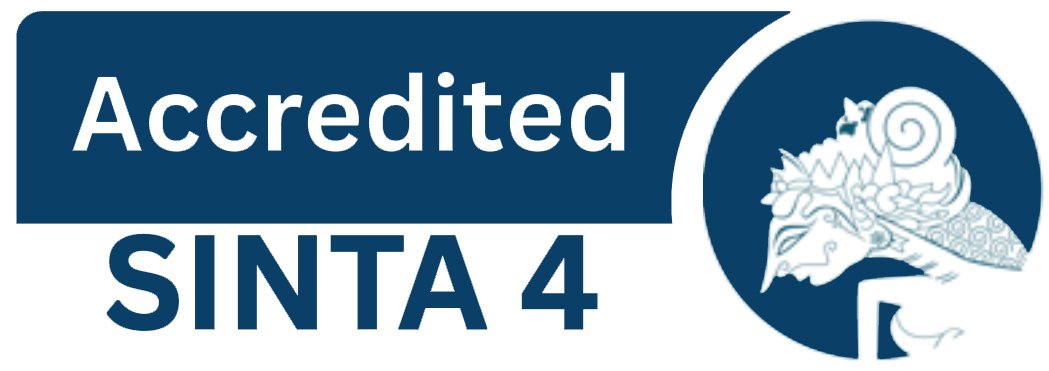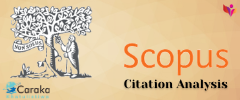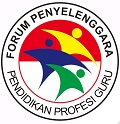Systematic Literature Review: The Utilization of the Edutainment Learning Model on Students’ Learning Motivation
DOI:
https://doi.org/10.22460/jpp.v4i1.27535Keywords:
Systematic Literature Review, Learning Model, Edutainment, Learning MotivationAbstract
This study aimed to describe the utilisation of the edutainment learning model on students’ learning motivation. The study used the Systematic Literature Review (SLR) method. The data used consisted of research articles sourced from the Google Scholar database. Data collection was conducted following the PRISMA Statement guidelines. We presented the obtained data descriptively to provide a comprehensive overview of the impact of the edutainment learning model on students' learning motivation. The analysis of the article indicated that using the edutainment learning model positively impacted students’ learning motivation by implementing key strategies, specifically incorporating media or technology in learning and including active learning activities. This study concluded that the use of the edutainment learning model could be implemented effectively by considering students’ characteristics, the availability of infrastructure or technology, and the competence of educators. Thus, this study provided a recommendation for educators or teachers to employ the edutainment learning model to enhance students’ learning motivation.
References
A’ yuni, L. K., Suryani, N. R., & Tahir, M. (2024). peningkatan motivasi belajar siswa pada mata pelajaran ipa dengan metode pembelajaran edutainment di kelas V SDN 6 Ampenan tahun pelajaran 2023/2024. Jurnal el-Huda, 15(01), 1-8.
Amelia, R. R., & Nugraheni, B. I. (2021). Motivasi belajar, prestasi belajar, dan keaktifan siswa di kelas ditinjau dari keikutsertaan siswa dalam program bimbingan belajar. Jurnal Pendidikan Ekonomi dan Akuntansi, 14(2), 1-10.
Arikarani, Y. (2017). Implementasi edutainment dalam pembelajaran al-qur’an bagi siswa sdit mutiara cendekia lubuklinggau. El-Ghiroh: Jurnal Studi Keislaman, 13(2), 67-89.
Azzahra, A. N., & Istiqomah, N. (2024). Faktor motivasi belajar rendah pada mata pelajaran ips. Jurnal Pendidikan Indonesia, 5(5).
Baharuddin, B., & Hatta, H. (2024). Transformasi manajemen pendidikan: integrasi teknologi dan inovasi dalam meningkatkan efektivitas pembelajaran. Jurnal Review Pendidikan dan Pengajaran (JRPP), 7(3), 7355-7544.
Dewi, L. (2021). Pengaruh penerapan model pembelajaran edutainment terhadap motivasi belajar peserta didik kelas viii pada mata pelajaran sejarah kebudayaan islam di MTs Miftahul Huda Kaliori Rembang (Disertasi Doktor, IAIN KUDUS).
Diawati, Amril, A., & Suarni, S. (2023). Eksperimen model pembelajaran edutainment terhadap motivasi belajar peserta didik. RELIGI: Jurnal Pendidikan Agama Islam, 1(2). https://doi.org/10.51454/religi.v1i2.620
Ginde, G. (2016). Visualisation of massive data from scholarly article and journal database a novel scheme. arXiv preprint arXiv:1611.01152.
Ginting, R. R. B., & Usiono, U. (2024). Systematic literature review (slr): penggunaan Bahasa Indonesia yang baik dan benar dalam kehidupan sehari-hari. Journal Sains Student Research, 2(6), 494-505.
Imamudin, Fahmi, R., Tabrani, M. B., & Setiawardani, W. (2024). Kompetensi pendidik dalam menghadapi pendidikan pada era society 5.0. AJIE-Asian Journal of Innovation and Entrepreneurship 8(1).
Jamaludin, U., Pribadi, R. A., & Rengganis, M. (2023). Penerapan model project based learning dalam meningkatkan keaktifan belajar peserta didik pada pembelajaran ipa. Didaktik: Jurnal Ilmiah PGSD FKIP Universitas Mandiri, 9(02), 3278-3296.
Lestari, D. A., Asrin, A., Setiawan, H., & Karma, I. N. (2022). Motivasi belajar siswa kelas v SDN Gugus V Ampenan pada masa pandemi covid-19. Jurnal Ilmiah Widya Pustaka Pendidikan, 10(1), 24-34.
Mahendra, R., Karim, H., & Muhammad, H. (2021). Penerapan metode edutainment dalam meningkatkan motivasi belajar pada mata pelajaran fikih. Islamic Education Studies: an Indonesia Journal, 4(2), 86-96.
Moher, D., Liberati, A., Tetzlaff, J., Altman, D. G., & PRISMA Group, T. (2009). Preferred reporting items for systematic reviews and meta-analyses: the prisma statement. Annals of internal medicine, 151(4).
Ernawati, N. (2020). Buku ajar mata kuliah metodologi riset penelitian data sekunder. Malang: Poltekkes RS dr. Soepraoen.
Muna, A. (2022). Implementasi metode pembelajaran berbasis edutainment dalam meningkatkan motivasi belajar peserta didik pada mata pelajaran pendidikan agama islam (pai) kelas 2 selama pembelajaran blanded learning di SDIT Al Islamiyah Karangbener Bae Kudus (Disertasi Doktor, IAIN Kudus).
Page, M. J., Moher, D., Bossuyt, P. M., Boutron, I., Hoffmann, T. C., Mulrow, C. D., ... & McKenzie, J. E. (2021). Prisma 2020 explanation and elaboration: updated guidance and exemplars for reporting systematic reviews.
Prasetya, A. D., Utama, A. H., & Mastur, M. (2024). Pemanfaatan sosial media sebagai penyajian konten pembelajaran digital: study literature review. Jurnal Riset dan Inovasi Pembelajaran, 4(2), 1004-1017.
Purwanto, N. (2007). Psikologi pendidikan. Bandung: Remaja Rosdakarya.
Rahmanita, U., & Khairiah, K. (2022). Model pembelajaran edutainment dalam meningkatkan motivasi belajar anak usia dini. Al-Khair Journal: Management Education, 2(1), 13-23.
Sanjaya, H., Misdalina, M., & Suryani, I. (2023). Analisis faktor-faktor penyebab rendahnya motivasi belajar peserta didik pada mata pelajaran ips kelas iv SD Negeri 1 Sunggutan. Journal on Education, 5(3).
Slameto. (2015). Belajar dan faktor-faktor yang mempengaruhi. Jakarta: Rineka Cipta.
Sriyanto, A., Rahman, M. K., & Sumarsih, E. (2022). Peningkatan motivasi dan hasil belajar matematika melalui metode edutainment di SD Negeri 2 Minggarharjo. Educatif Journal of Education Research, 4(4), 45-41.
Sufyadi, S. (2022). Memaknai merdeka belajar. J-INSTECH, 3(1), 10-17. https://doi.org/10.20527/j-instech.v3i1.7916
Sumitro, A. H., Setyosari, P., & Sumarmi. (2017). Penerapan model problem based learning meningkatkan motivasi dan hasil belajar ips. Jurnal Pendidikan: Teori, Penelitian, dan Pengembangan, 2(9).
Susanti, S. (2020). Implementasi model edutainment dalam pembelajaran di MI modern Al-Azhary Lesmana Kecamatan Ajibarang Kabupaten Banyumas (Disertasi Doktor, IAIN Purwokerto).
Sutomo, F. G., & Aini, M. R. Q. (2024). Pemahaman karakteristik peserta didik dalam mengoptimalkan pembelajaran. Jurnal Kajian Penelitian Pendidikan dan Kebudayaan, 2(4), 60-72.
Taliak, J. (2021). Teori dan model pembelajaran. Indramayu: Penerbit Adab.
Telupun, D. (2020). Efektivitas penerapan model pembelajaran edutainment untuk memotivasi peserta didik selama pembelajaran secara daring di masa pandemi covid-19. Jurnal Syntax Transformation, 1(6), 254-262.
Trahati, M. R. (2015). Implementasi pendidikan karakter peduli lingkungan di Sekolah Dasar Negeri Tritih Wetan 05 Jeruklegi Cilacap. Basic education, 5(12).
Zulkarnain, N. F., Mumtadzah, A. R., & Asiyah, A. (2023). Dampak serta efektifitas pembelajaran edutainment anak usia dini di lab school audifa. Bouseik: Jurnal Pendidikan Islam Anak Usia Dini, 1(2), 131-139. Martuti, U. (2023). Edutainment dalam Pembelajaran IPS di MI Ya BAKII Kesugihan 01. J-PGMI: Jurnal Pendidikan Guru MI, 6(2), 185-195.
Downloads
Published
How to Cite
Issue
Section
License
Copyright (c) 2025 Kamilia Salsabila, Susanti Sufyadi, Agus Hadi Utama

This work is licensed under a Creative Commons Attribution-ShareAlike 4.0 International License.
Authors who publish with the Journal Pendidikan Profesi (JPP) agree to the following terms:
- Authors retain copyright and grant the journal the right of first publication with the work simultaneously licensed under a Creative Commons Attribution License (CC BY-SA 4.0) that allows others to share the work with an acknowledgment of the work's authorship and initial publication in this journal.
- Authors are able to enter into separate, additional contractual arrangements for the non-exclusive distribution of the journal's published version of the work (e.g., post it to an institutional repository or publish it in a book), with an acknowledgment of its initial publication in this journal.
- Authors are permitted and encouraged to post their work online (e.g., in institutional repositories or on their website) prior to and during the submission process, as it can lead to productive exchanges, as well as earlier and greater citation of published work. (See The Effect of Open Access)
Similar Articles
- Yanuar Rafindo, Puspa Dianti, Laili Linda Hartati, Application of ICT-Based Problem Based Learning Method as a Learning Innovation for Pancasila Education to Improve Learning Outcomes of Class VII D Students of SMPN 51 Palembang , Jurnal Profesi Pendidikan: Vol. 4 No. 1 (2025): June
- Oky Prayogi, Ryan Dwi Puspita, Implementation of Constructivism-Based Game-Based Learning Model in Science Learning for Grade IV , Jurnal Profesi Pendidikan: Vol. 4 No. 1 (2025): June
- Enur Nurmawati, Meningkatkan Motivasi dan Hasil Belajar Matematika Peserta Didik Kelas VII Melalui Penerapan Model Pembelajaran Problem Based Learning , Jurnal Profesi Pendidikan: Vol. 3 No. 1 (2024): June
- Izzah Millati, Agustina Tyas Asri Hardini, Improving the Cooperation Attitude of Grade V Students Through the Application of Problem-Based Learning Model in Pancasila Education Subjects , Jurnal Profesi Pendidikan: Vol. 4 No. 1 (2025): June
- Kurnia Akbar, Citadewi Aditya, Lathifah Rizki, Nelly Ade Karisma, Selvi Novitasari, Widya Sulistia, Yulianti Yulianti, Penerapan Model Problem Based Learning Berbantuan Komik Digital untuk Meningkatkan Pemahaman Konsep Matematis Siswa pada Materi Perkalian Pecahan di Kelas V Sekolah Dasar , Jurnal Profesi Pendidikan: Vol. 3 No. 2 (2024): December
- Julia Julia, Umi Chotimah, Tyas Masito Mutiara, Enhancing Learning Motivation of Grade XI.9 Students Through Zep Quiz Media in Civics Education at SMA Negeri 3 Palembang , Jurnal Profesi Pendidikan: Vol. 4 No. 1 (2025): June
- Sidik Handoko, Puspa Dianti, Laili Linda Hartati, Improving Student Motivation in Learning Pancasila Education with Bamboozle Media Games in Class VII B SMP Negeri 51 Palembang , Jurnal Profesi Pendidikan: Vol. 4 No. 1 (2025): June
- Mira Astria, Ryan Dwi Puspita, Application of Humanistic Theory Assisted by Deep Learning in Science Learning Grade 4 SDN 108/1 Sungai Rumbai , Jurnal Profesi Pendidikan: Vol. 4 No. 1 (2025): June
- Luviani Sri Rezeki, Trisna Nugraha, Penggunaan Model Project Based Learning Berbasis Socio Scientific Issues untuk Meningkatkan Kemampuan Berpikir Kreatif Siswa Kelas IV Sekolah Dasar , Jurnal Profesi Pendidikan: Vol. 3 No. 2 (2024): December
- Ayang Wike Sintia, Jajang Bayu Kelana, Anugrah Ramadhan Firdaus, Peningkatan Keterampilan Berpikir Kritis Pada Mata Pelajaran IPA Materi Rangkaian Listrik Sederhana Dengan Menggunakan Model Pembelajaran STEM di Kelas VI Sekolah Dasar , Jurnal Profesi Pendidikan: Vol. 3 No. 1 (2024): June
You may also start an advanced similarity search for this article.
















